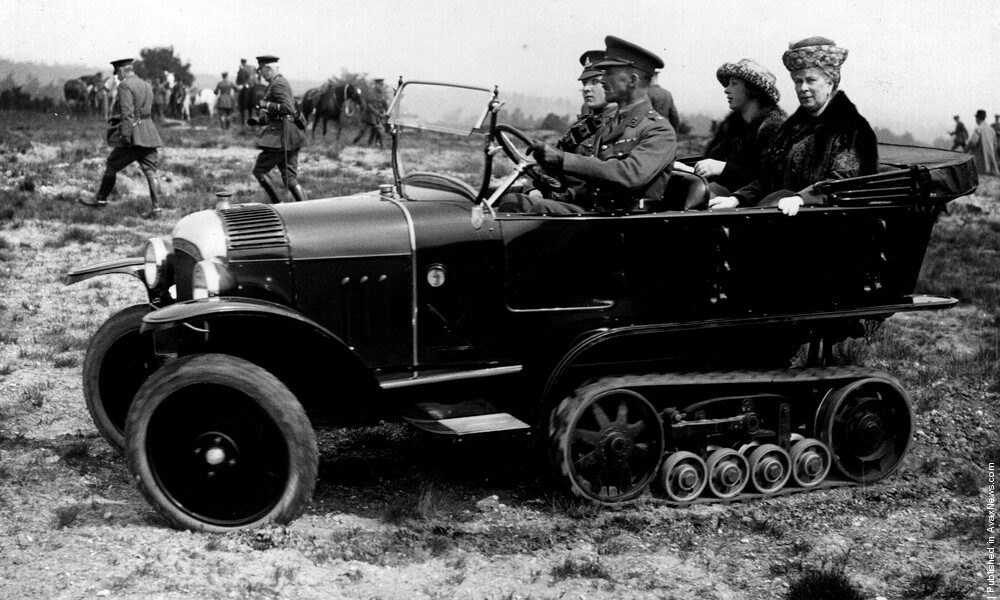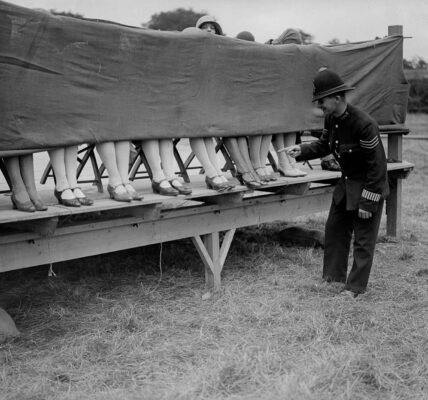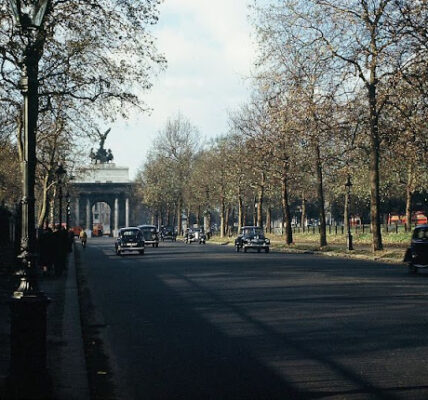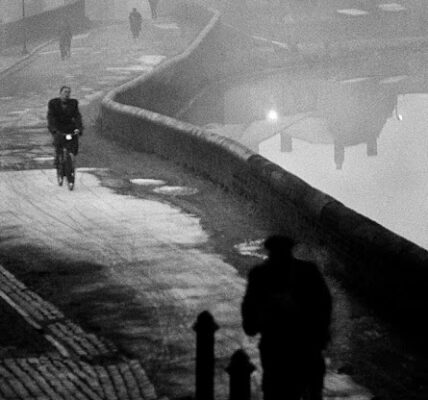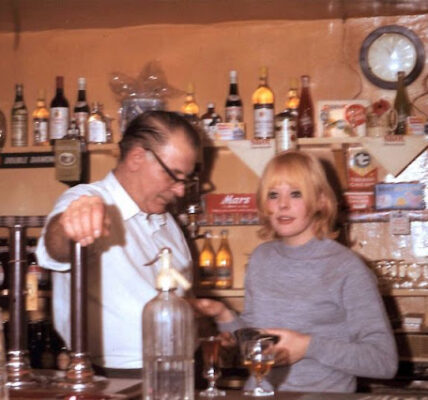Picture the early days of cars—a time of wild experimentation and bold ideas. From then till the mid-20th century, some truly outlandish vehicles hit the roads, breaking all the rules and grabbing attention like nothing else.
At that time, technology in the automotive industry was in its infancy. This encouraged enthusiasts and designers to think outside the box, seeking unique solutions to transportation challenges.
Customization wasn’t merely about aesthetics; it was a way to tackle problems in innovative ways.
Imagine cars designed for multiple terrains—some vehicles of this era blurred the lines between land and air, pushing the boundaries of what a car could achieve.
Others focused on comfort, transforming vehicles into mobile living spaces with unconventional layouts.
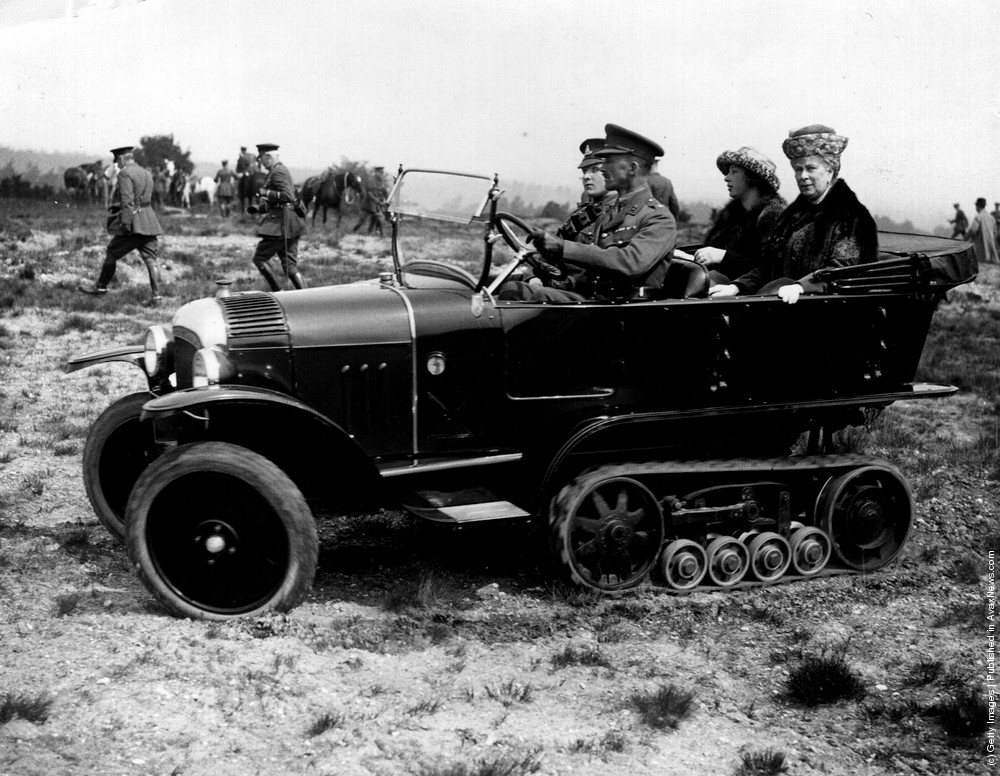
Queen Mary with Princess Mary, the Princess Royal being driven across rough ground in a tracked car by Army officers, 1920s.

English aircraft manufacturer Sir Edwin Alliott Verdon Roe riding his Avro Mobile, which he invented, at Southampton. 1924
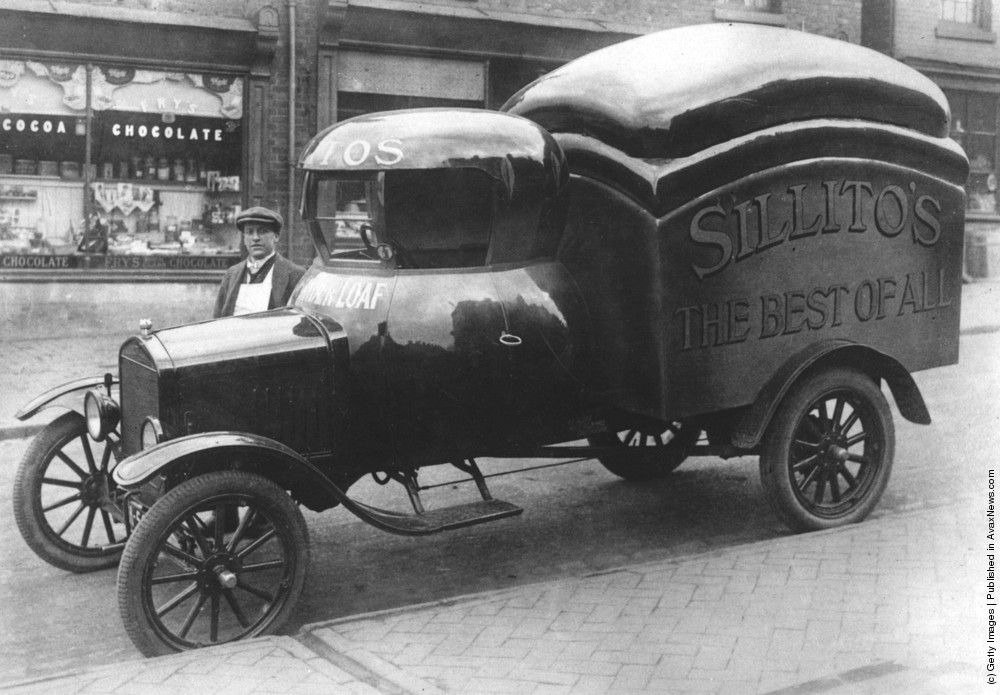
Baker Mr. Sillitoe has constructed a delivery van with the driver’s cab and the van in the shape of loaves of bread. 1925.
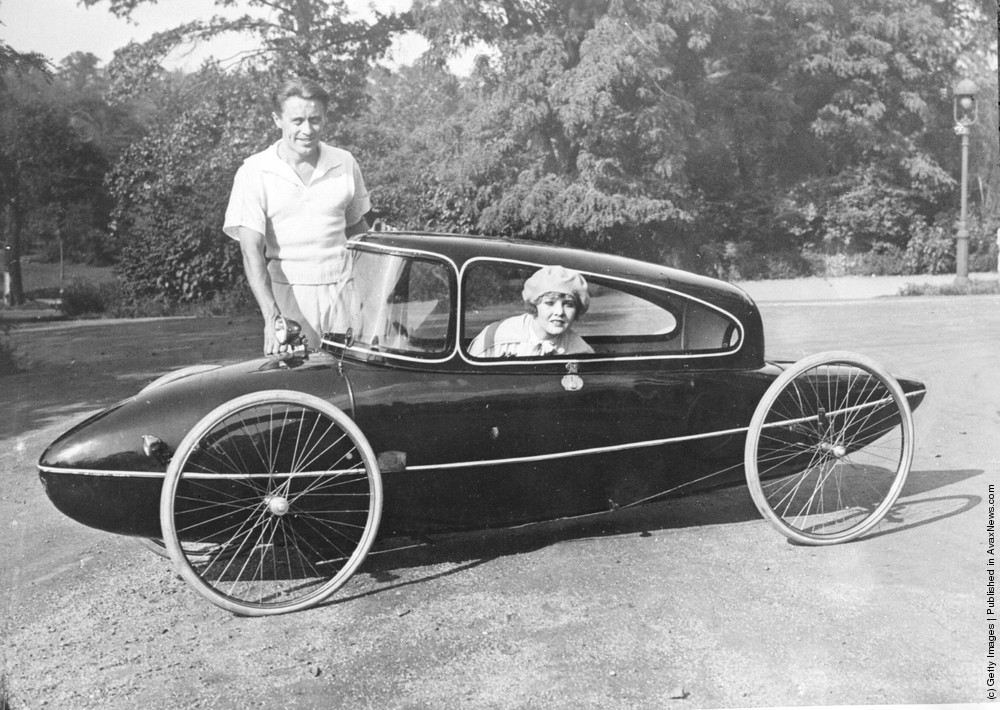
Dr. Manfred Curry standing beside his invention, the Curry-Landskiff, a man-powered vehicle which can reach speed of up to 35 miles per hour. 1925.
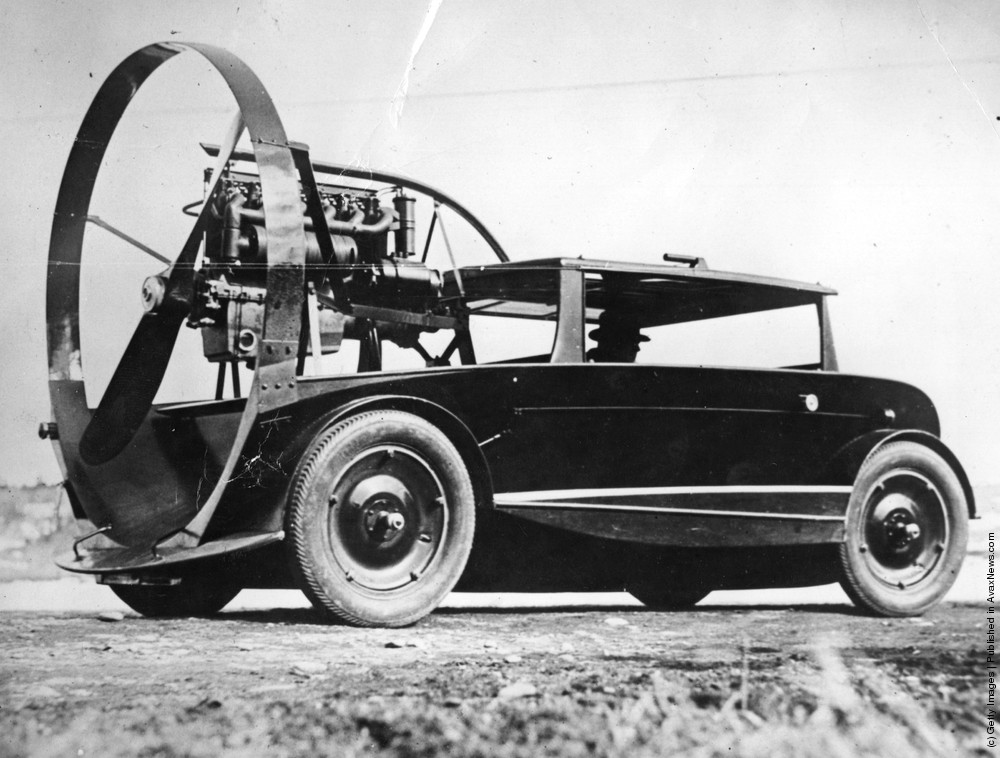
A vehicle invented by George McLaughlin which was designed to travel on ice and snow. 1926.

The Peugeot motor-boat car, on a river bank. The front end is shaped like the bow of a boat, the middle part like a car and it has wheels. 1926.

A fruit importers lorry at Covent Garden, London, with its driver’s cabin in the shape of an apple. 1928.

A man cycling a [One-Man Car Cycle] in a street in the West End of London. 1928.
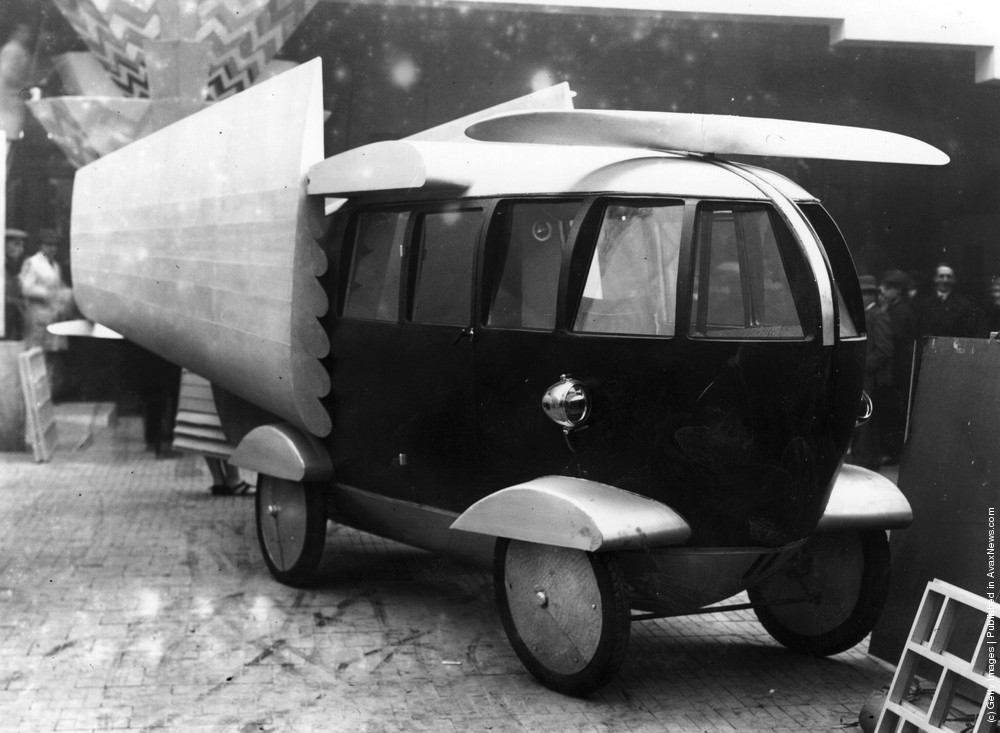
Back views of an English invention capable of being used as a car, boat and plane. Showing are a tail fin, rudder and propeller. It also has two wings which can fold back and another propeller at the front. 1928.
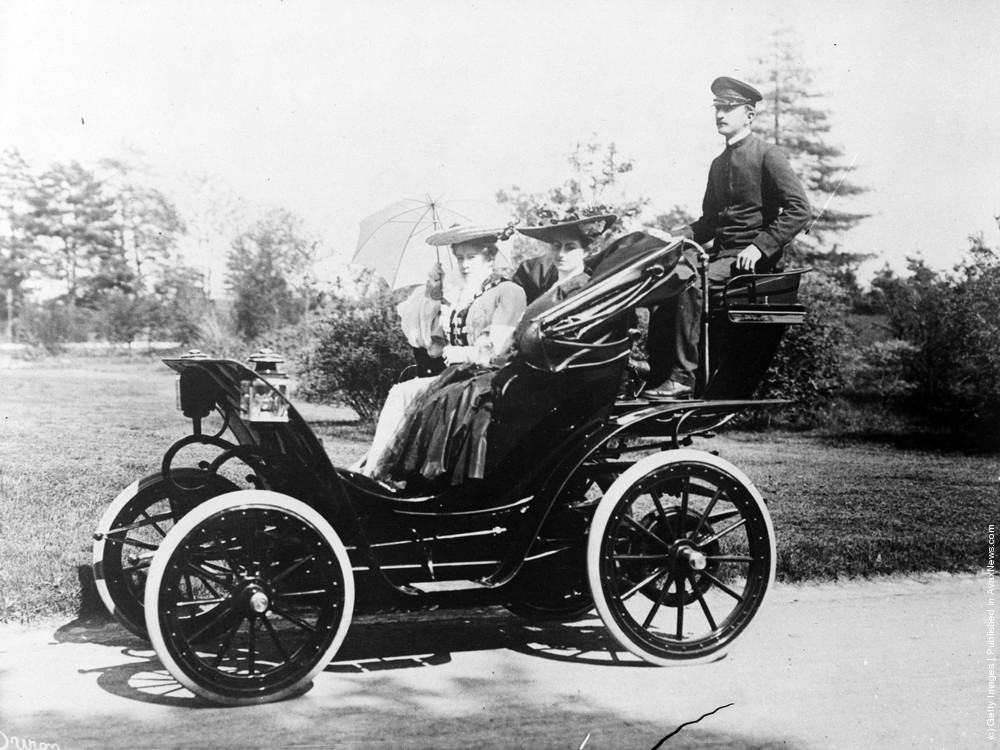
Two Victorian ladies out for a drive with their chauffeur. 1900s.
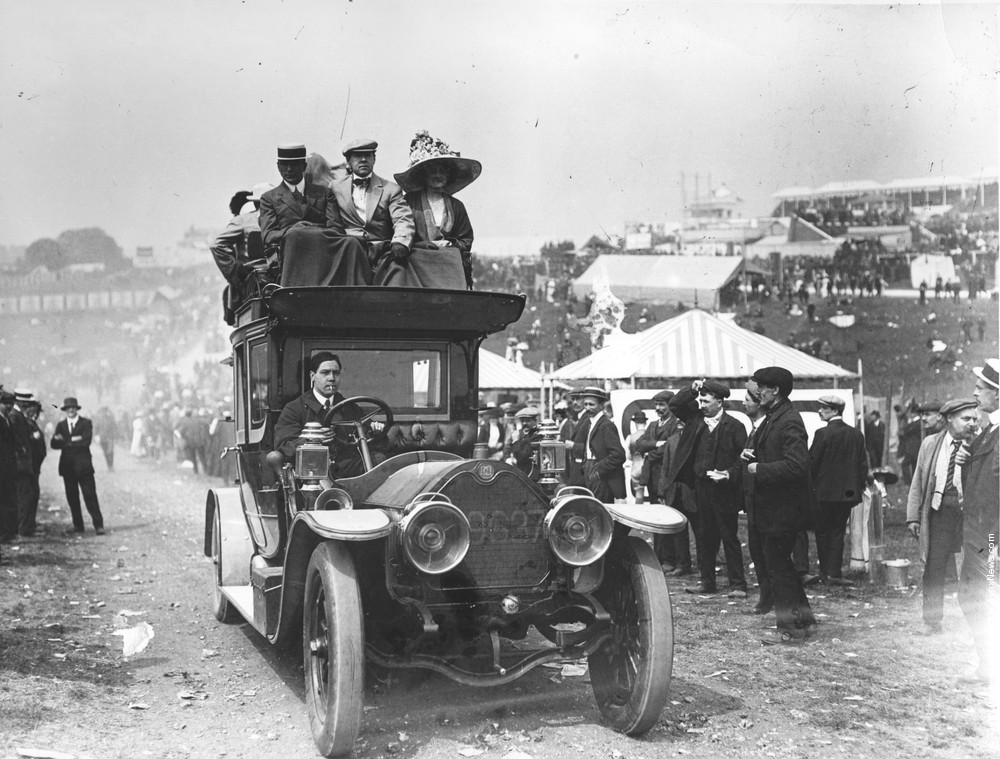
Traveling to the Derby by chauffeur driven car. United Kingdom. 1911.
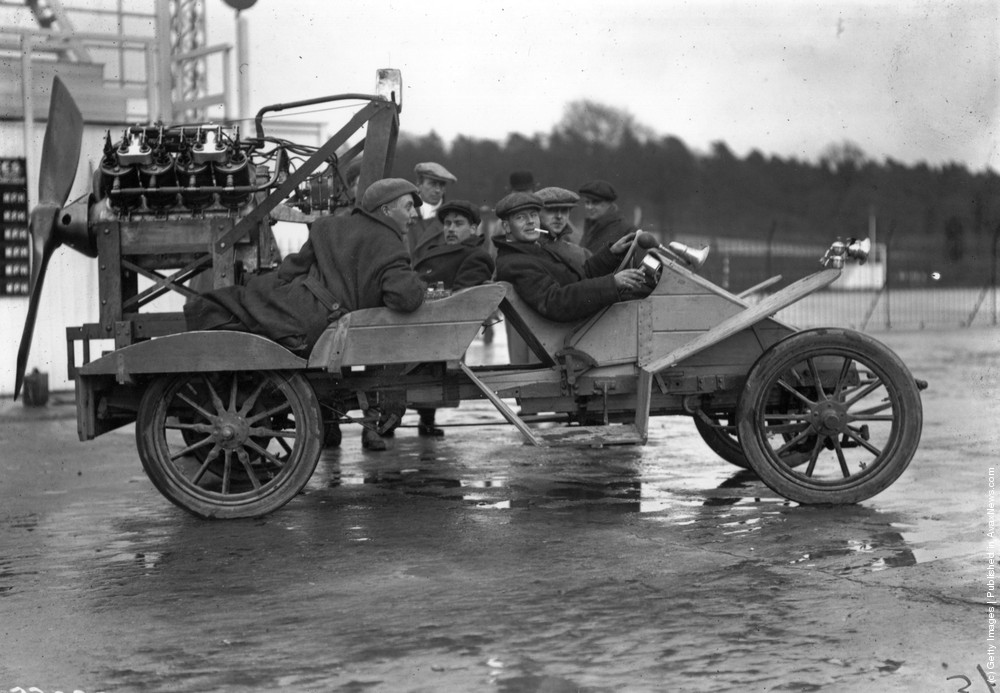
A motor car at Brooklands race track which has been fitted with a propeller for extra speed. 1911.

A demonstration of a vacuum cleaner for the London streets, with representatives of the London Corporation in the car. 1913.

A very early Carden [Lightcar] being driven along the street. 1916.
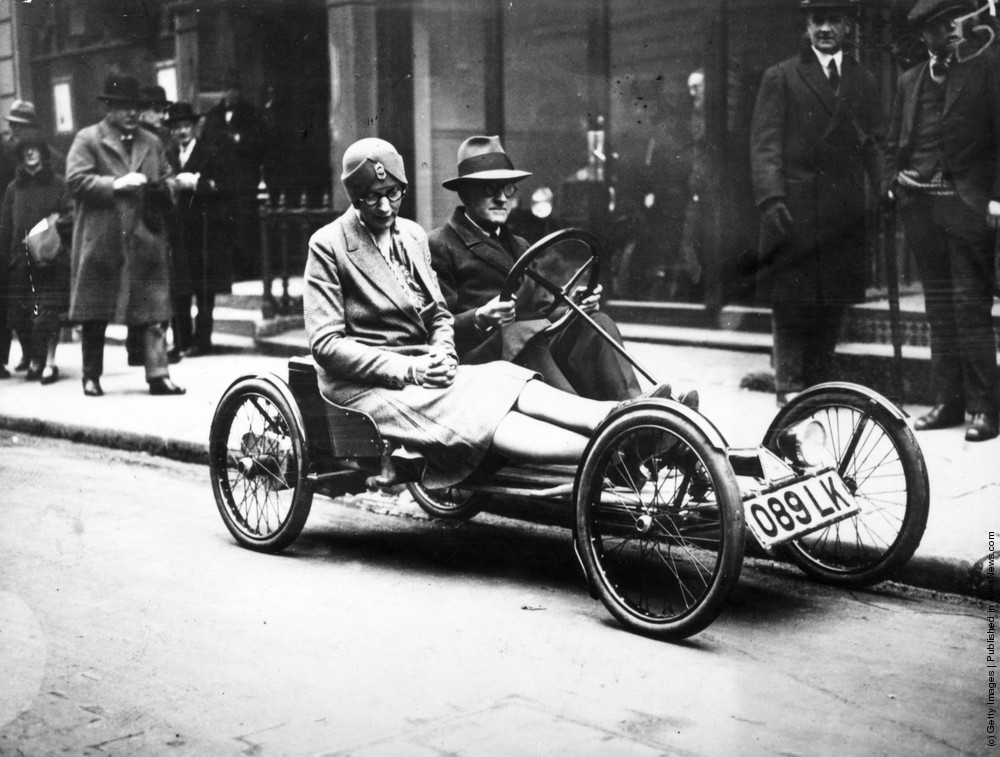
A man and a woman riding in an [Auto Red Bug], America’s latest electric 2-seater runabout, in a London street. Driven by a 16-volt battery, it is capable of 12 mph. 1929.

A three-wheeled car made by Mr. A. Graham of Kingston, Surrey. The vehicle, designed in a nautical style, reaches a maximum speed of 70 miles an hour with a body made entirely of sheet iron. 1929.
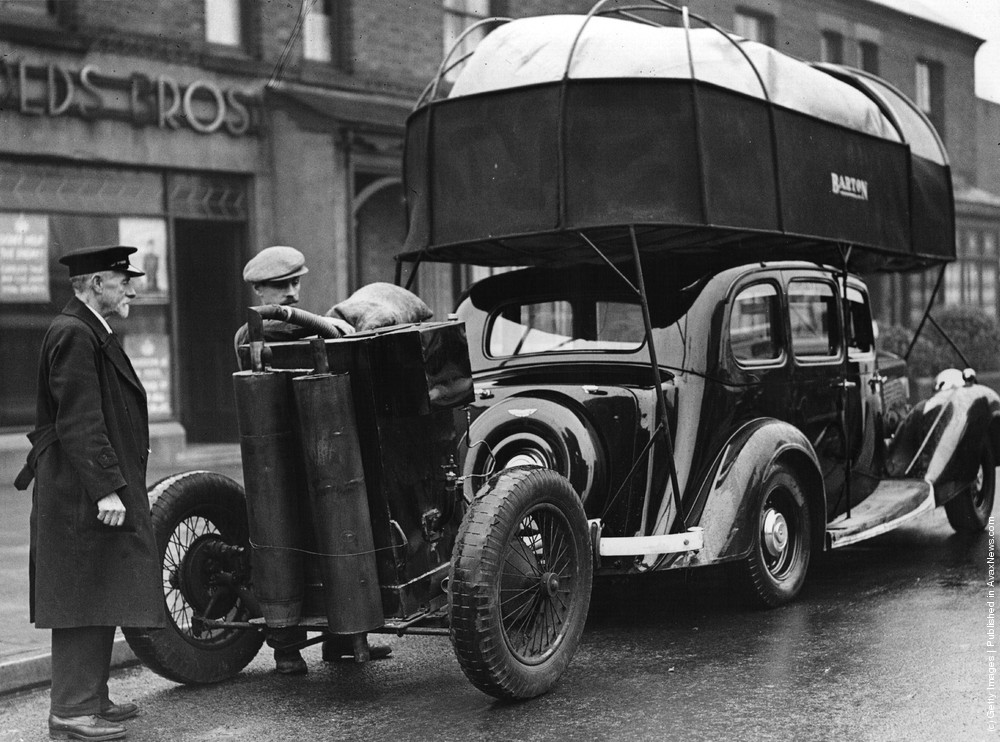
A car driven by gas held in a large balloon on the roof and pulling a gas trailer. 1930.
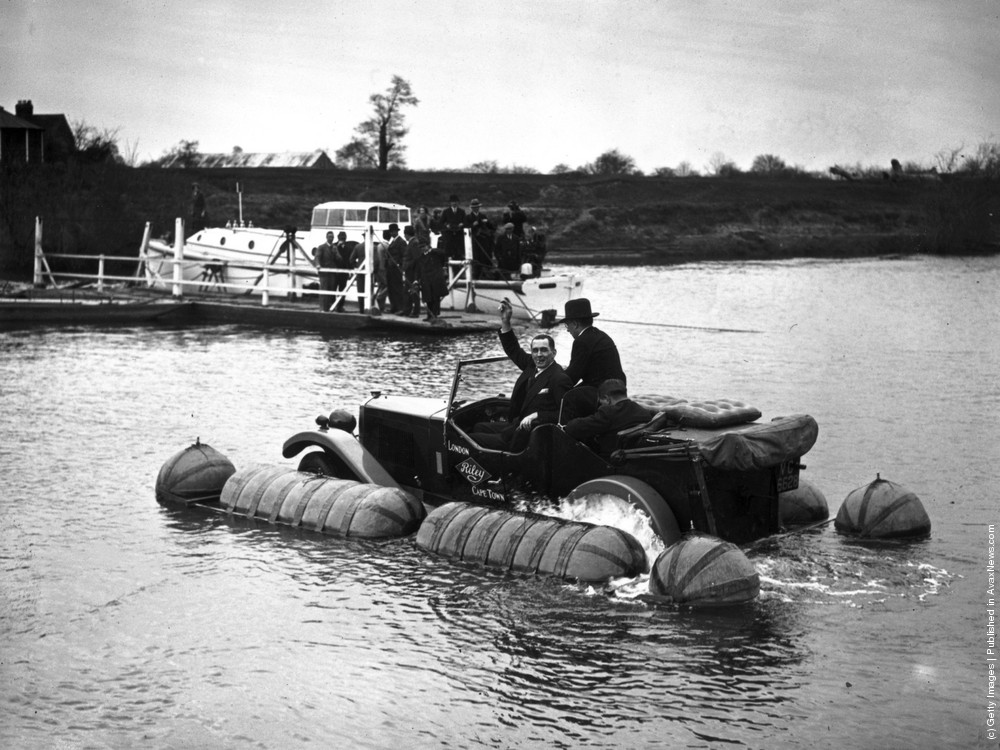
Captain Malin with an amphibian Riley car going down the Severn. He is taking a convoy of these cars for a London to Cape Town venture. The car is mounted on a portable balloon apparatus and driven by its own power through small paddles on the rear wheels. 1931.
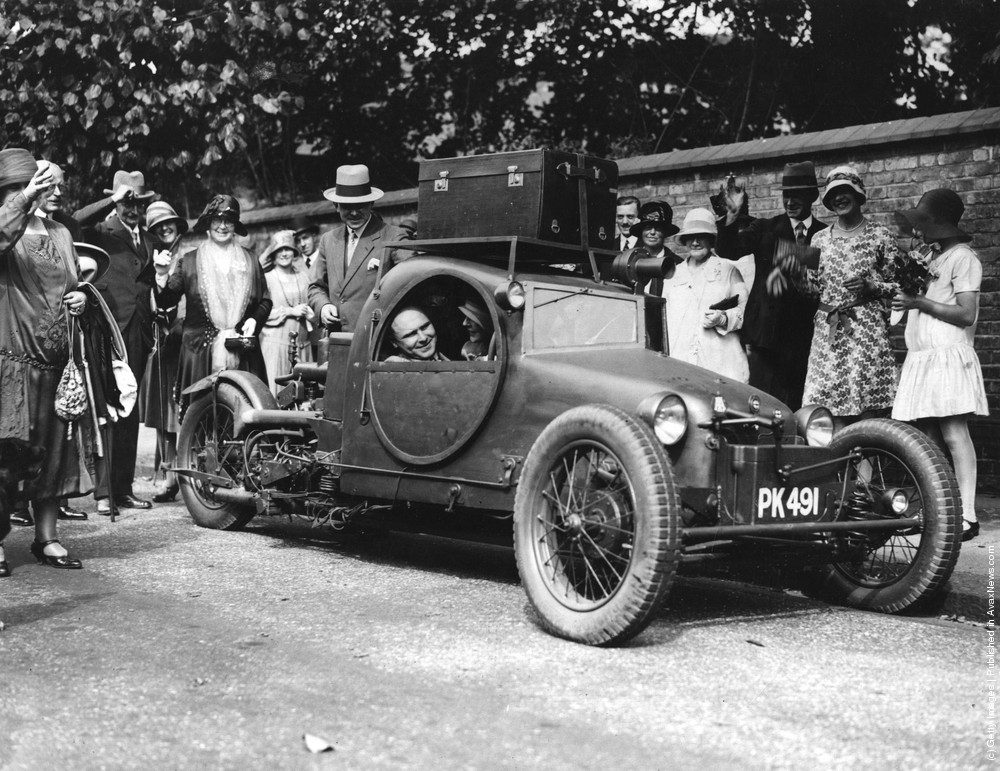
Mr. Grahams’ novel three-wheel car designed to look like an armored car, being used to take himself and his bride on honeymoon after their wedding. 1931.
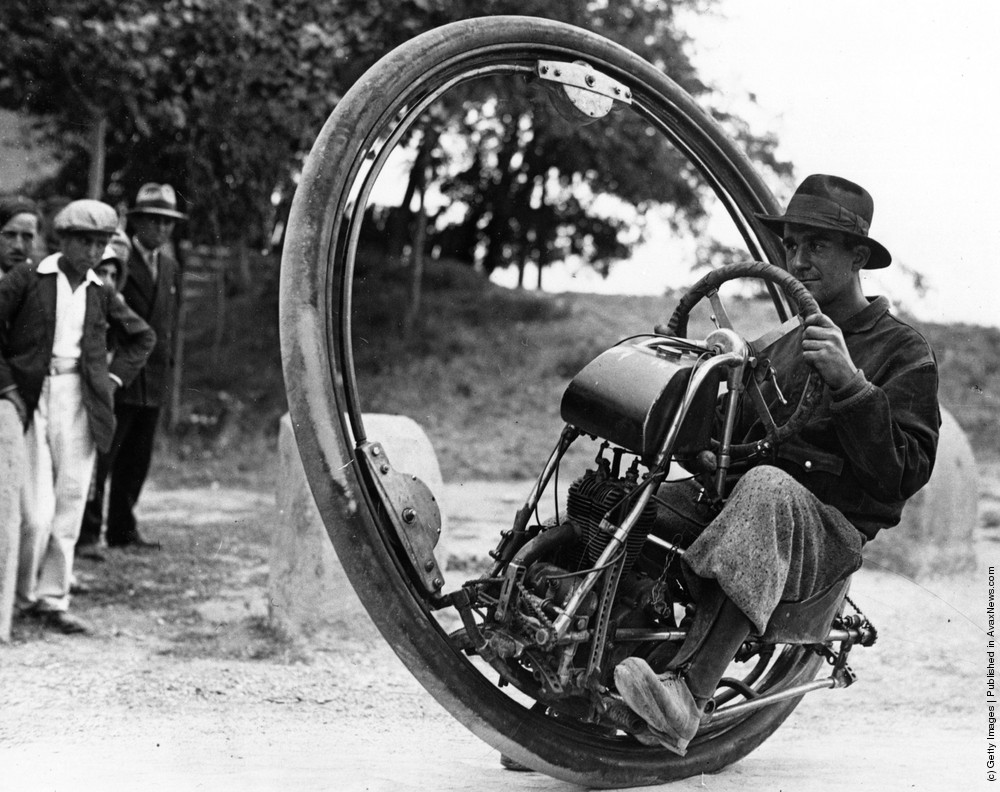
Swiss engineer M. Gerder at Arles, France on his way to Spain in his [Motorwheel], a motorcycle with a wheel which runs on a rail placed inside a solid rubber tire. 1931.
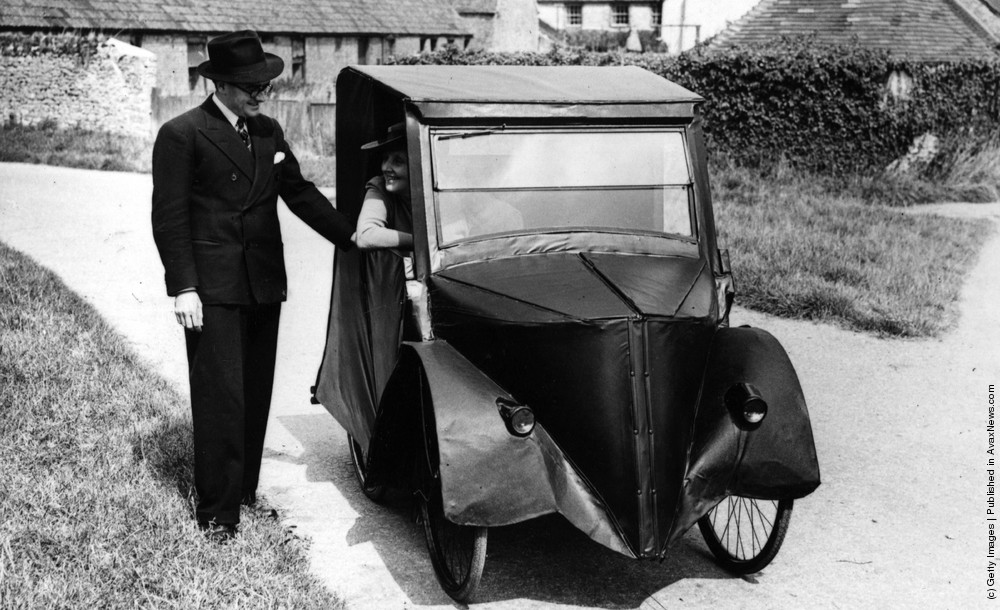
Three tricycles make car for two. Dr. J. B. Hanson and wife demonstrate their car. 1931.
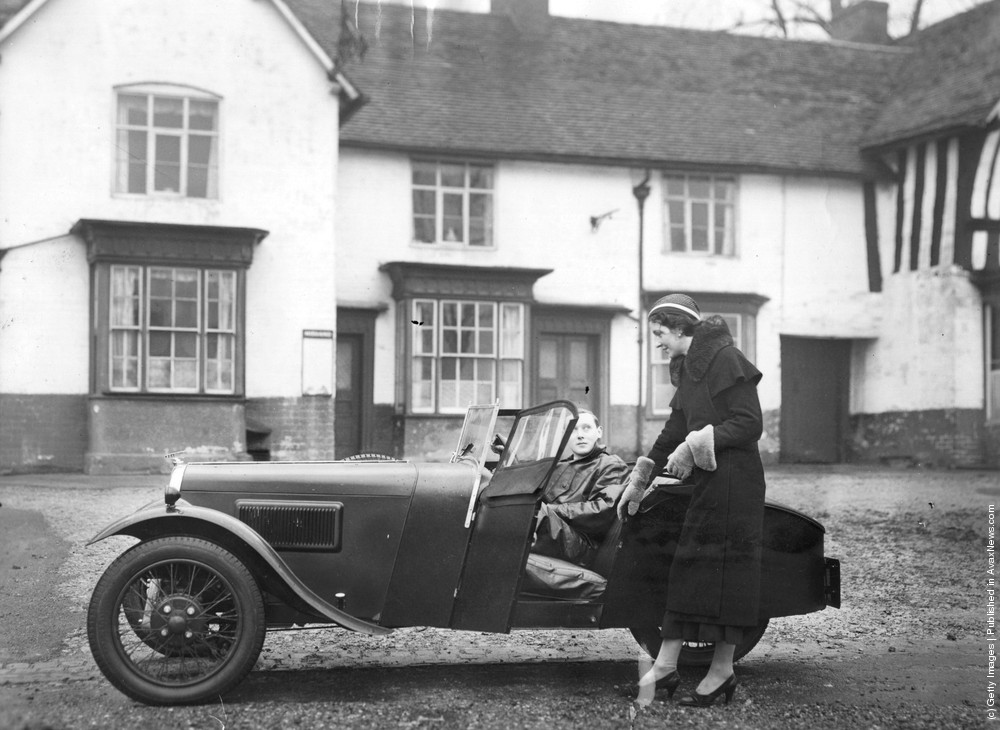
A view of the motor car that will be display at the Motor Show, which has only three wheels, and sells at £100. It is made by B.S.A. and the annual tax of £4 and running costs are the same as a heavyweight sidecar outfit. 1933.

Customers buying snacks at the bar of a bus. 1933.
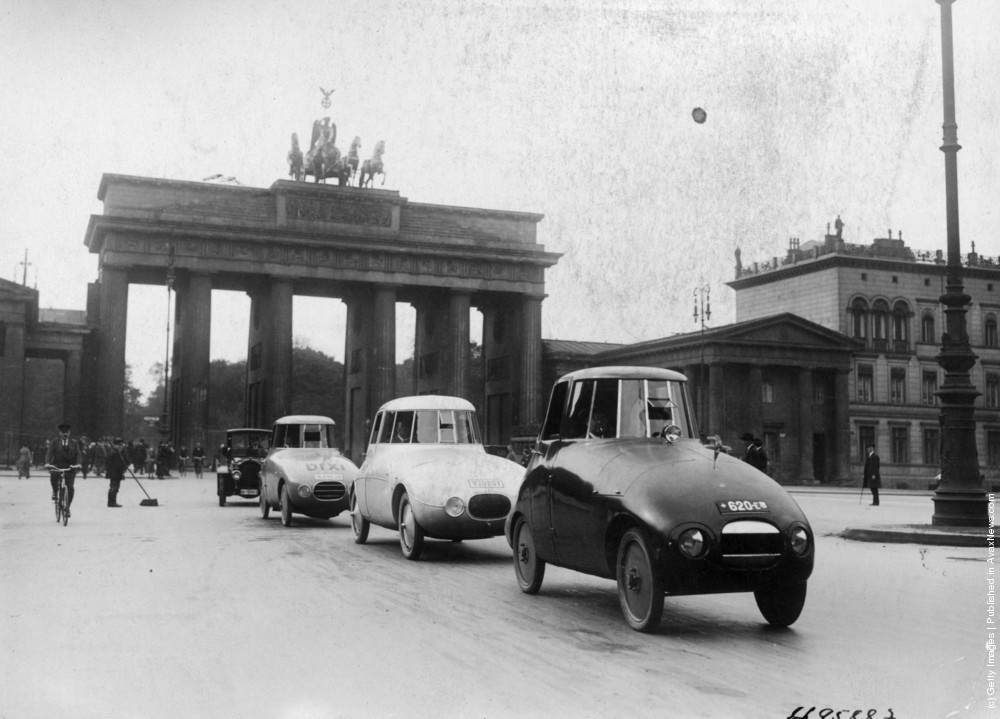
A pioneering experimental streamlined car with bodywork designed by Hungarian-born German aerodynamicist Paul Jaray being driven around the streets of Berlin for the first time (the Brandenburg Gate is in the background). 1935.
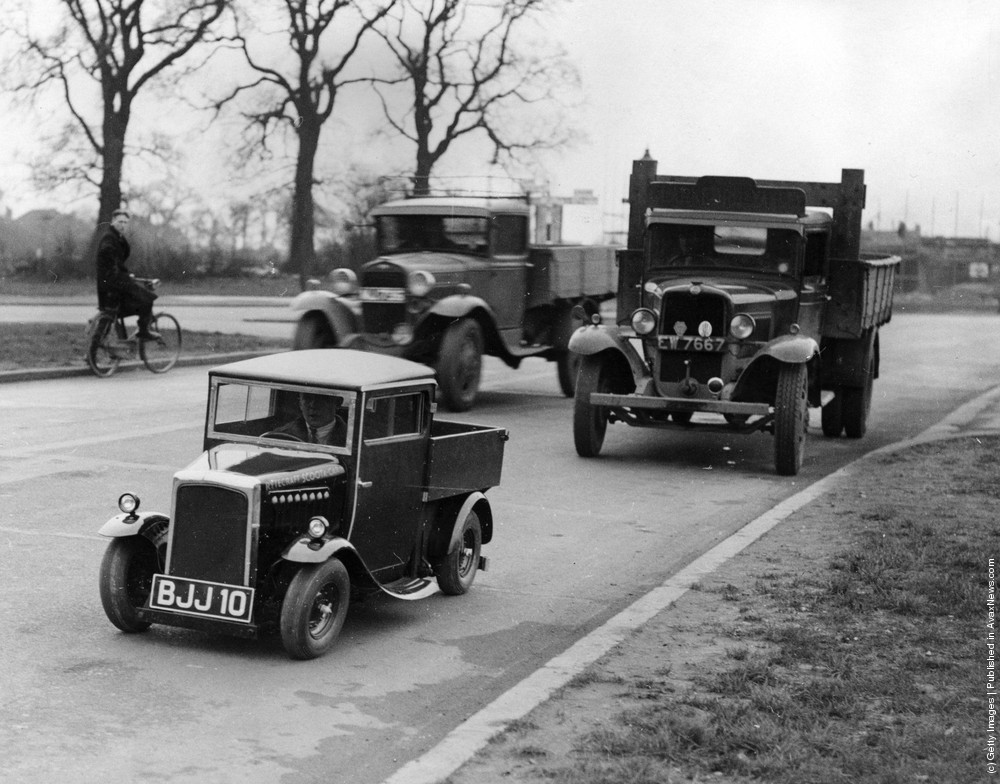
The newly built one-horsepower Rytecraft lorry, believed to be the smallest motor lorry in the world, on the North Circular Road with other traffic. 1935.
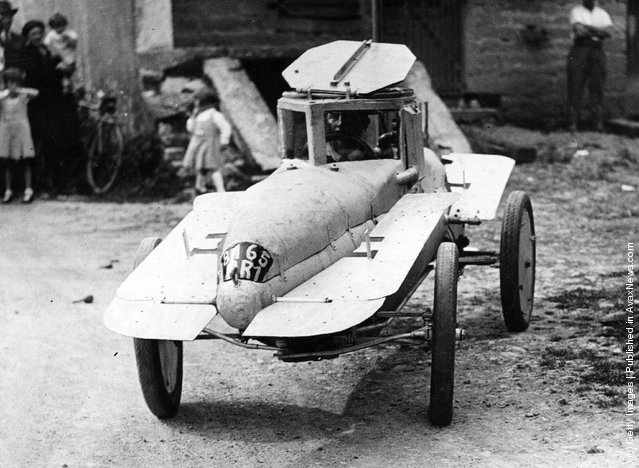
A submarine motor car, which can travel both on land and underwater and is equipped with a 4 hp engine and steel fins on both sides. 1937.
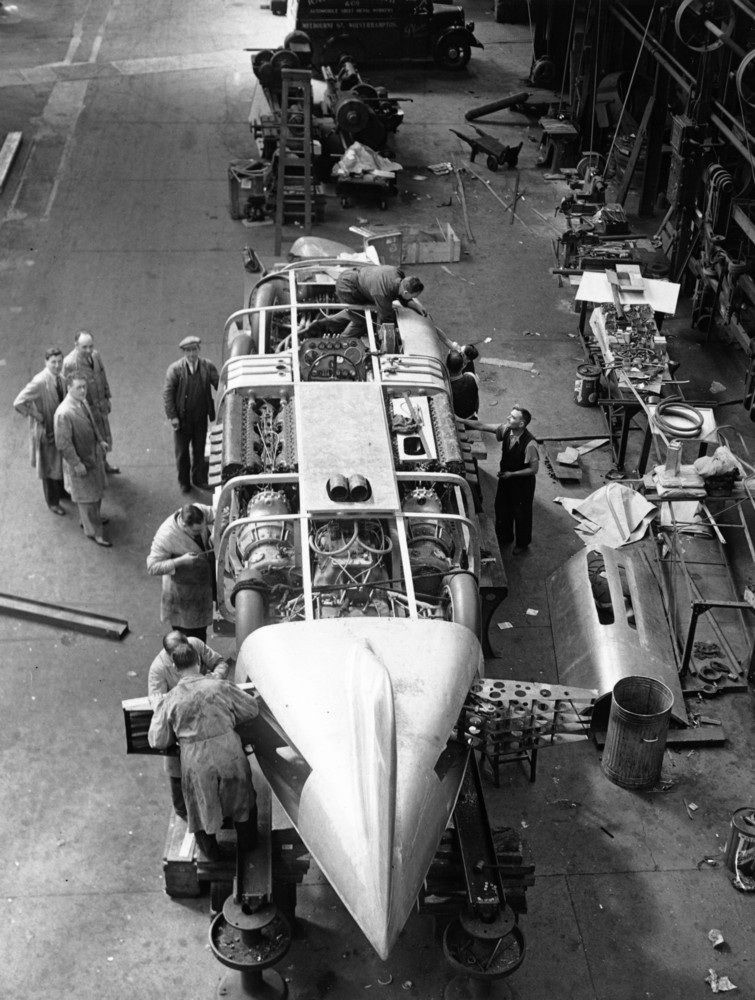
Staff at work behind guarded doors at a workshop near Wolverhampton on the streamlined car in which designer and motor racer George Eyston will attempt to reach 400 mph on the salt beds near Salt Lake City, Utah. 1937.
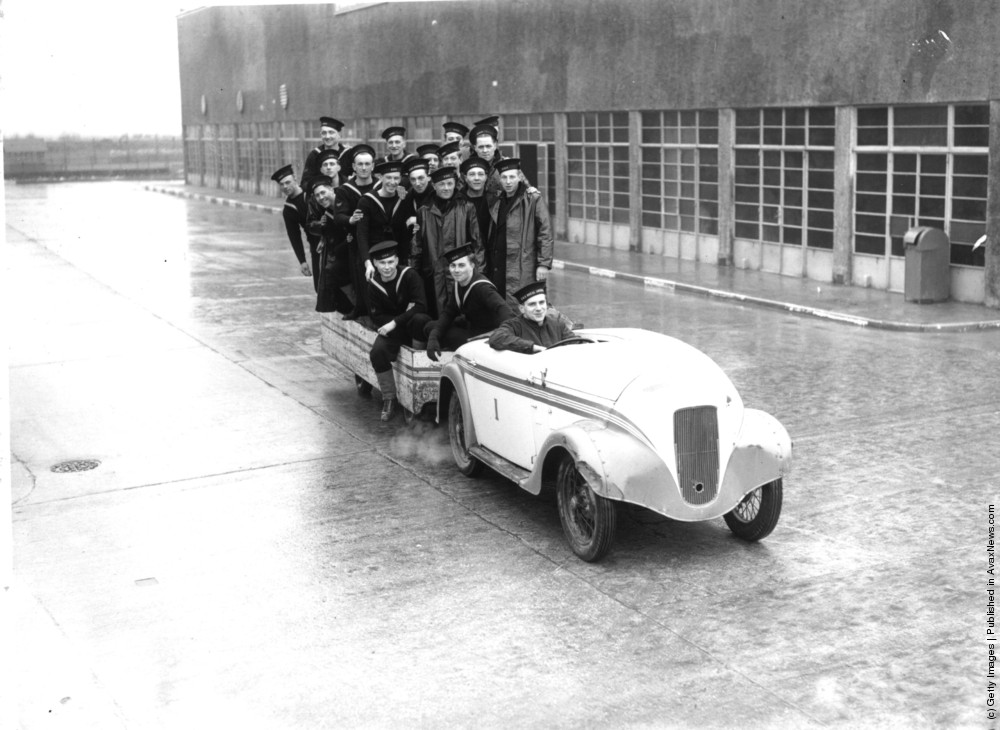
Navy recruits riding in car and trailer at the HMS Royal Arthur training centre formerly Butlins holiday camp, Skegness. 1940.
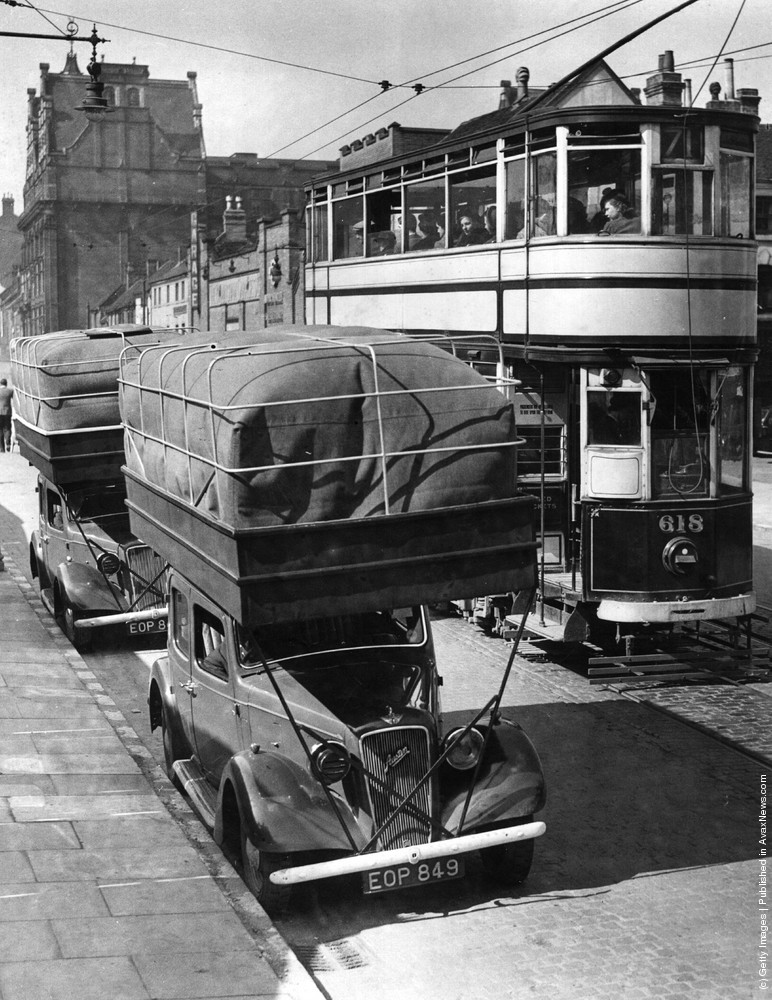
Gas-driven taxis in a street in Birmingham. The gas bags on the roofs of the taxis last about 15 to 20 miles without a refill. 1940.
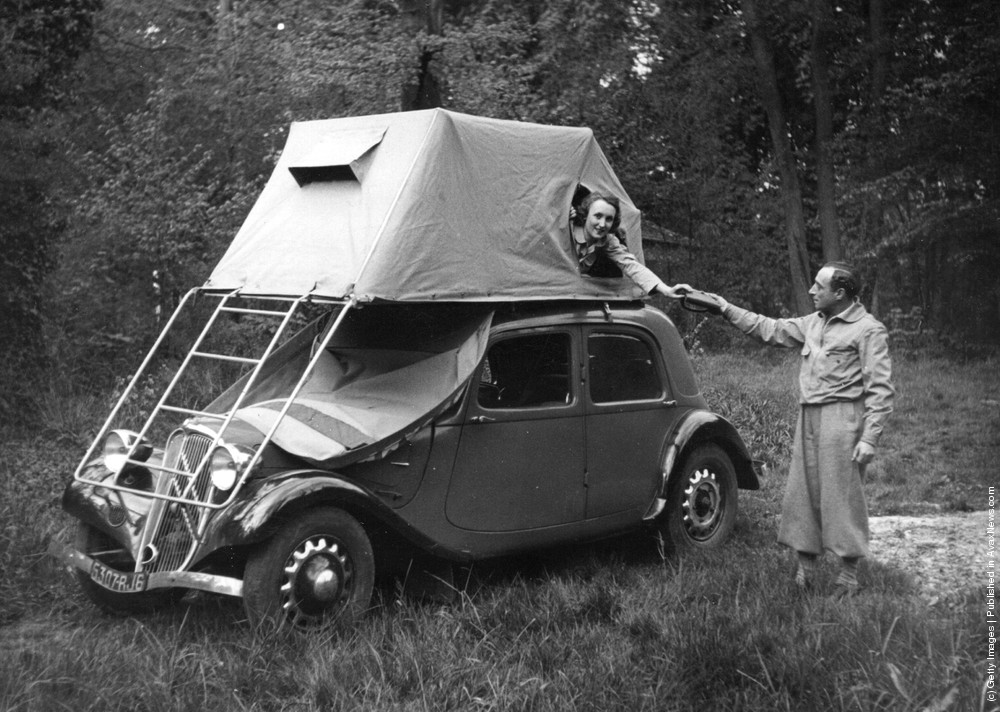
A tent that balances very neatly on top of a car. 1950.
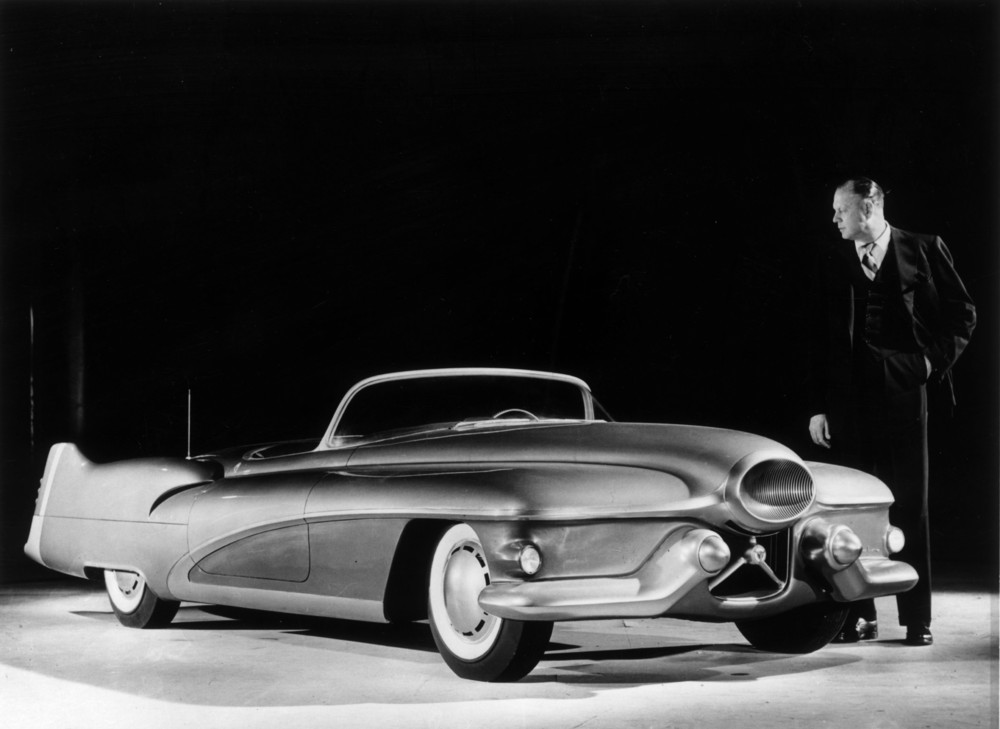
Designer Harley J. Earl of General Motors examining a full scale model of the Buick Le Sabre, a custom made sports car which will be used to test design features for other vehicles. United States. 1951.
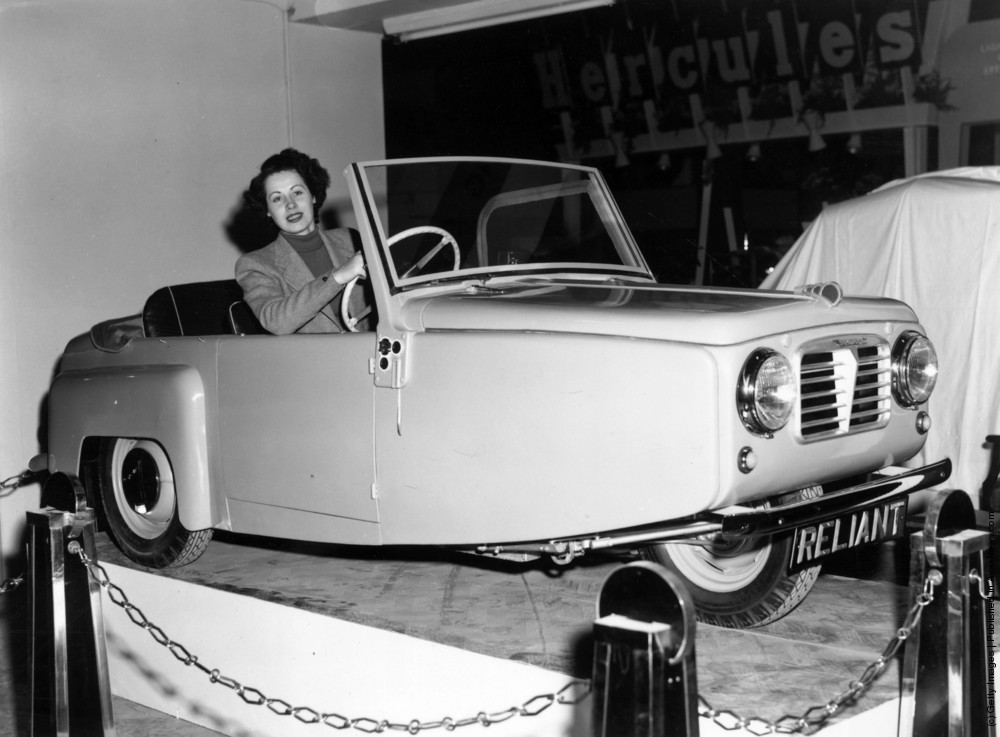
The Regal four-seater coupe, produced by the Reliant Engineering Co., Tamworth, Staffordshire, on show at the Cycle and Motor Cycle Show at Wasrls Court in London. 1952.
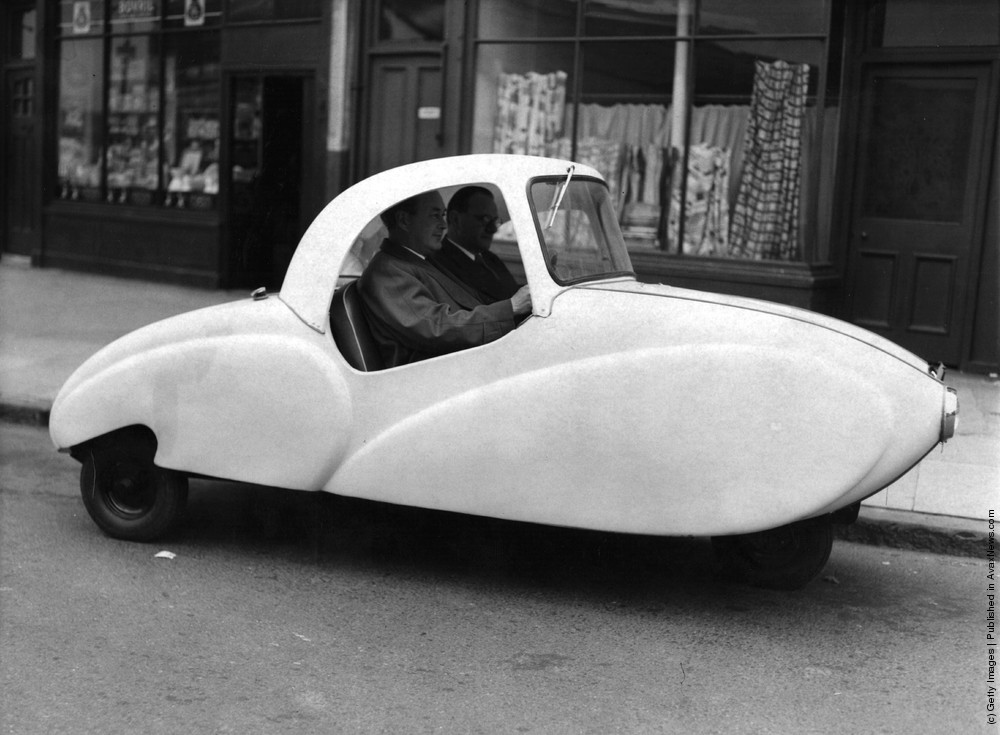
A new [Peoples Car], with an entirely plastic body, designed to seat three adults and two children and marketed as the cheapest car on the road. 1954.
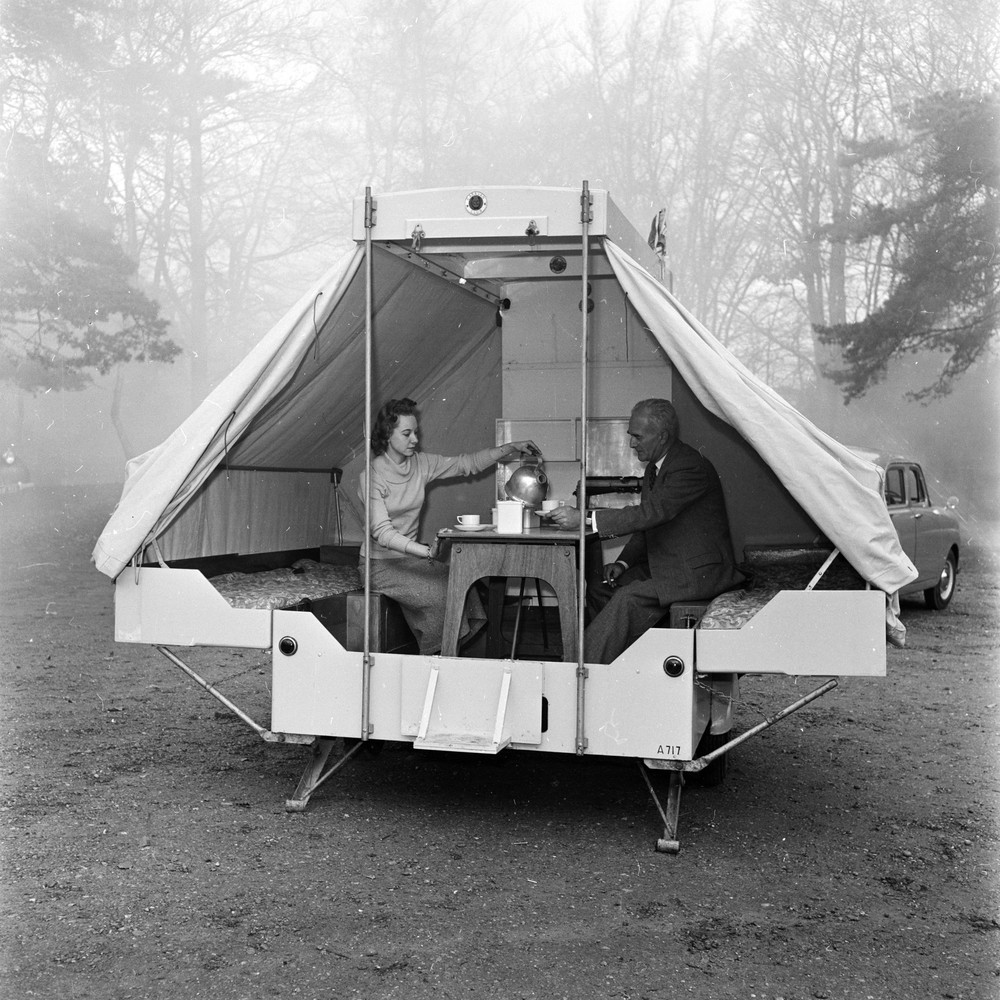
Designed for comfort the Bedouin B collapsible caravan converts from a compact trailer into a spacious home for two in four minutes flat. 1956.
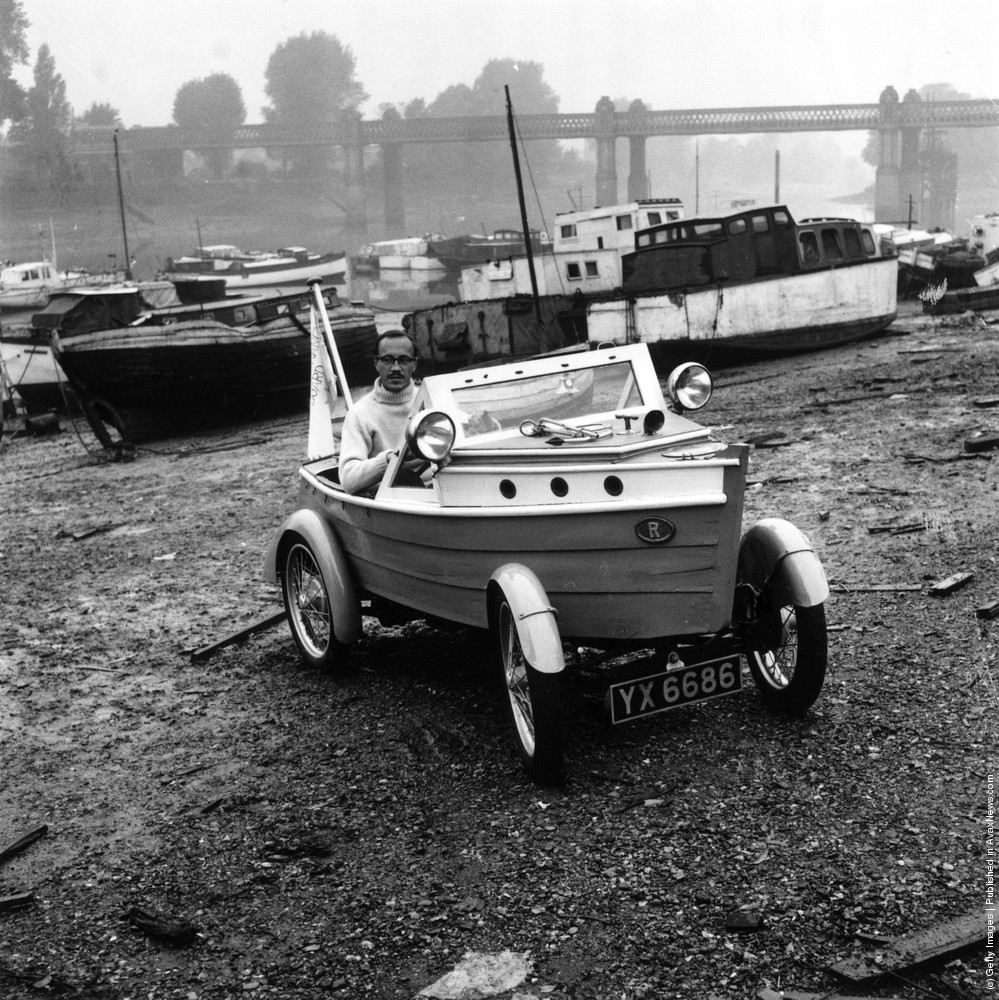
Clive Talbot Of Chiswick, London, in his car built with the body of a boat. 1959.

The sun-powered car, a 1912 Baker Electric Mode which has been adapted to run from energy obtained from the sun’s rays. Dr. Charles Alexander Escoffery, the car’s inventor, explains the workings of the solar panel. 1960.
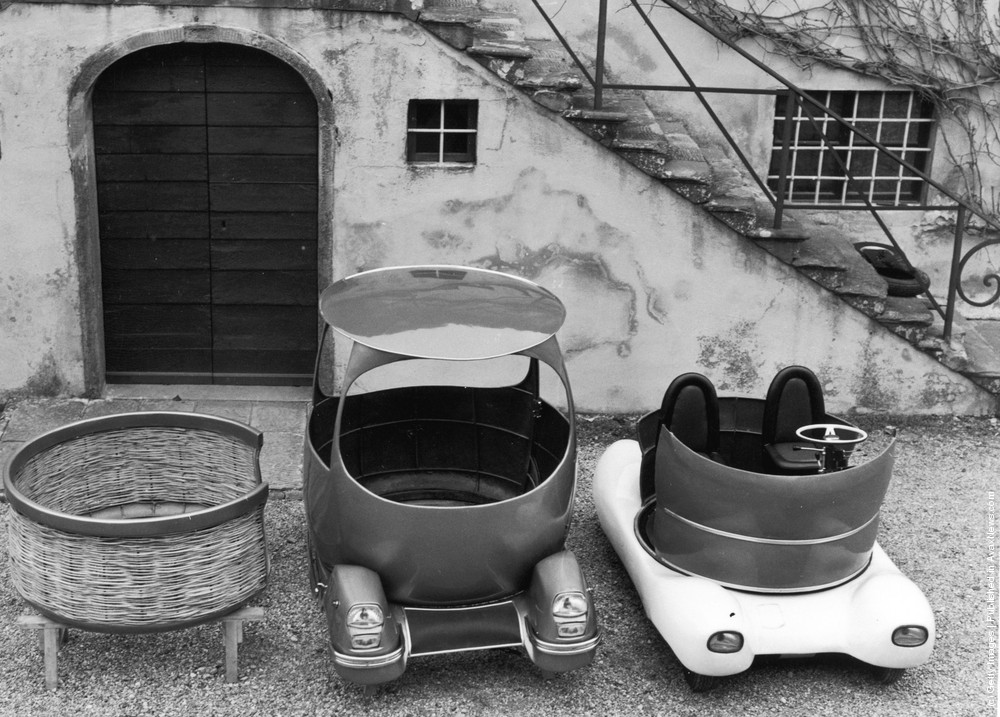
The [Urbania], the world’s smallest working car, invented by Marquis Piero Bargagli of Poggio Adorno to solve the problem of limited parking space. The engine is situated in the center of the chassis and the seats rotate on a circular rail, enabling the passengers to descend from any side. 1964.

A man inspecting the engine of his miniature, motorized car, “The Scamp”. 1966.
(Photo credit: Pinterest / AvaxNews / Flickr / Wikimedia Commons / Reddit).
